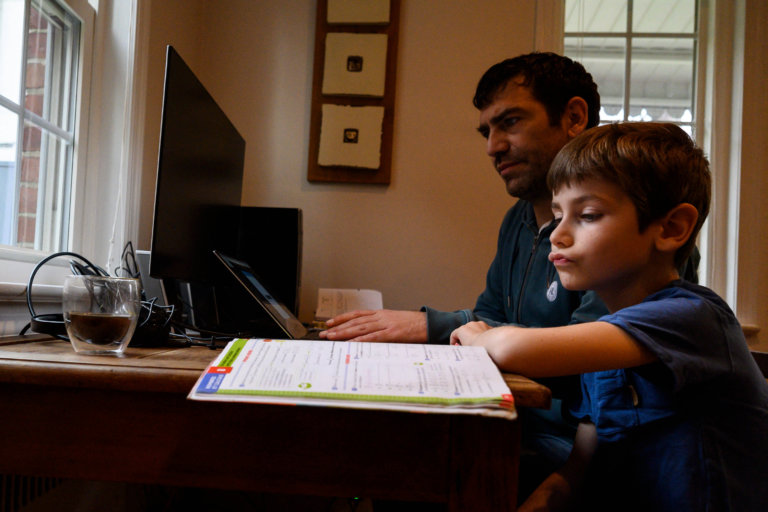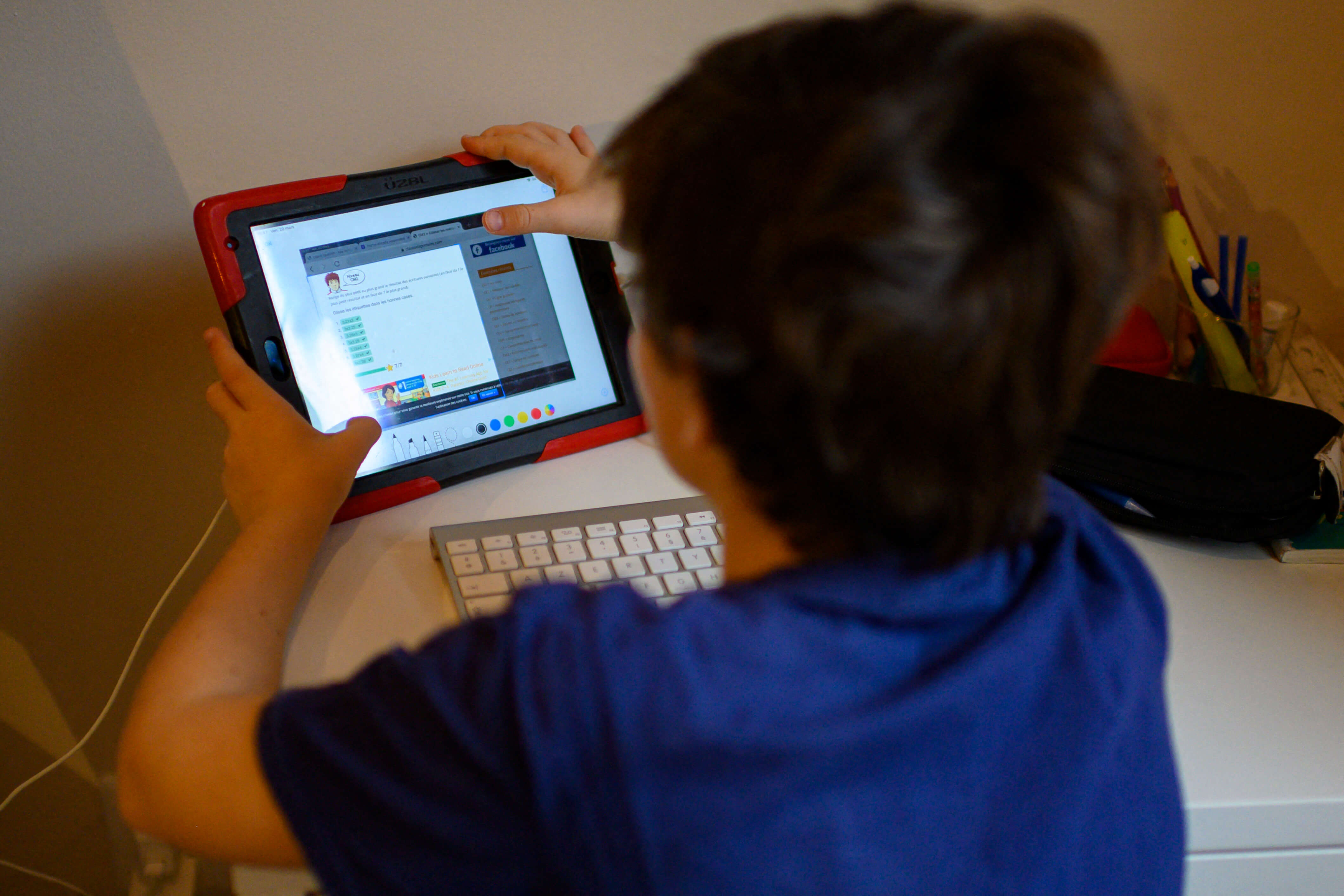
Faced with long school closures because of the coronavirus pandemic, many US parents have taken to homeschooling to ensure their children’s education continues despite the massive disruptions of the past year. “It’s all me: I make the lesson plan, execute the lesson plan, then do it again the next week,” said Catherine Strokes, whose daughter’s school shut last year because of the pandemic.
Homeschooling “exploded” when the virus caused school closures across the country in March 2020, according to the National Home School Association, based in Colorado. The number of children being taught at home in the United States rose from between four and five million in 2019 to almost 10 million last year, the NHSA estimates. Nearly 51 million students, from kindergarteners to 12th graders, were supposed to have gone to public schools after the summer of 2020, but most schools opted for online instruction instead.
Strokes, 37, who works part-time, made her decision in July, when school officials in Fredericksburg, Virginia were still undecided on how to start classes the following month. More than fear of Covid-19, it was this uncertainty that pushed her into homeschooling. “Like most people with a part-time job, I had to know what day my kids would go to school, but they kept canceling school at the last minute, lengthening break or going all virtual, it was this instability for me and my daughter,” she told AFP.

Colin, 10, whose school was closed following the Coronavirus outbreak, does school exercises at home in Washington on March 20, 2020. Source: Eric Baradat/AFP
Isabelle, aged seven and in second grade, therefore joined her big brother Aidan, 10 and in the fifth grade, who had already been studying at home for more than a year with his mother, a member of the Organisation of Virginia Homeschoolers. Many parents do not want their children to spend the day staring at a screen, believing it is bad for their health, or find it too difficult to supervise online courses, Andrea Cubelo-McKay, president of Virginia Homeschoolers, told AFP.
Some religious communities also educate their children at home. This type of instruction affords a certain “flexibility,” said Strokes. “I decide when school starts, when our day is done, I decide when we take a break,” she said. She takes on all subjects on the curriculum — reading, writing, science and math — so that Isabelle doesn’t fall behind her in-school classmates, but she does concentrate on what she considers most important.
Homeschooling: A ‘challenge’
NHSA President J. Allen Weston said the transition can be “a challenge” for children used to traditional school. There is a “huge difference” between home instruction and virtual lessons, he told AFP. It is also difficult for parents who must juggle their job and their role as teacher, while lacking benchmarks for performance, said Cubelo-McKay. “Every day is different and challenging,” said Strokes. “One will have a good day while the other … may or may not be cooperative, some subjects are harder to teach than others.”
A massive campaign to vaccinate teachers is underway in the United States, which should make it possible to safely reopen schools. The cities of New York, Los Angeles and Chicago, with the three largest school districts in the country, have plans to gradually reopen, but some parents are reluctant to put their children back in school next year. “For next year I really don’t know, it will depend on how the school handles the fall, the sanitary measures, and how they make up for lost learning for virtual students,” said Amber Lancaster, the mother of a third-grader who has been homeschooling in Richmond, Virginia, since September.
She said her son gives her a “nine out of 10” for this year, even though he misses class discussions with his friends. Currently unemployed, Lancaster is ready to carry on homeschooling for another year. “I’m not opposed to one more year of homeschooling, it will be third grade, not too complicated,” she said.
According to the Urban Institute think tank, local authorities fear a drop in the number of students, believing that homeschooling is not a substitute for classroom education. This youthful brain drain from schools could also affect the funding allocated to school districts, which is calculated each year in part based on enrollment numbers.







